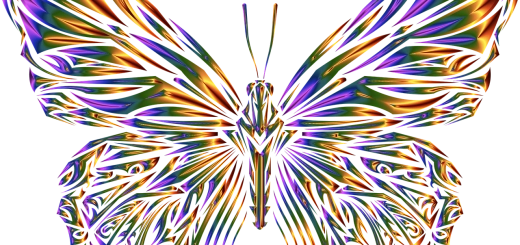Elemental Influences: Understanding the Five Chinese Elements

Looking for more amazing products? Check out our online store and explore our collection here! Happy shopping!
Before diving in, please note: This post is for informational purposes only. If you’d like to know more about how we approach topics, feel free to check out our friendly Disclaimer Page.
Hey there, amazing readers! 
We’re committed to delivering quality posts, and your support (even just sticking around despite the ads) means everything to us. So, bear with us, and thanks for helping us keep the good vibes rolling. Now, on to the fun stuff!
TRANSLATE BUTTON AT THE END OF THE ARTICLE
A Quick Overview: The Five Chinese Elements Explained
In Chinese philosophy, the concept of the Five Elements, also known as Wu Xing, is a fundamental principle that governs the natural world.
These elements are Wood, Fire, Earth, Metal, and Water, each representing different energies and characteristics.
Unlike the Western understanding of the elements as substances, the Chinese elements are more symbolic and abstract in nature, embodying a range of qualities and influences.
According to Chinese cosmology, the Five Elements interact with each other in a cyclical manner, creating a dynamic system of balance and harmony.
Each element has its own unique properties, associations, and correspondences, influencing various aspects of life, from personality traits to health and relationships.
Understanding the Five Elements is key to achieving harmony and well-being in Chinese philosophy and practices such as Feng Shui and Traditional Chinese Medicine.
Wood Element: Characteristics and Influences
The Wood Element represents growth, vitality, and flexibility in Chinese philosophy.
It is associated with the spring season, the color green, and the liver and gallbladder in Traditional Chinese Medicine.
People born under the Wood Element are believed to possess qualities such as assertiveness, creativity, and determination.
They are seen as natural leaders and visionaries who are adaptable and resourceful.
Key Characteristics of the Wood Element:
Growth and expansion
Creativity and innovation
Leadership and vision
Flexibility and adaptability
In Feng Shui, the Wood Element is linked to the Eastern direction and is believed to promote growth and abundance when balanced correctly in the home or workplace.
Balancing the Wood Element can help enhance creativity, promote new beginnings, and foster a sense of renewal and vitality.
Fire Element: Understanding its Role in Chinese Philosophy
The Fire Element represents passion, energy, and transformation in Chinese philosophy.
It is associated with the summer season, the color red, and the heart and small intestine in Traditional Chinese Medicine.
People born under the Fire Element are believed to possess qualities such as enthusiasm, charisma, and drive.
They are seen as passionate and dynamic individuals who are full of life and creativity.
Key Characteristics of the Fire Element:
Passion and enthusiasm
Energy and vitality
Creativity and inspiration
Transformation and renewal
In Feng Shui, the Fire Element is linked to the Southern direction and is believed to bring warmth, excitement, and motivation when balanced effectively in the living space.
Balancing the Fire Element can help ignite passion, enhance creativity, and bring positive energy into one’s life.
Earth Element: Its Importance in Chinese Medicine
The Earth Element represents stability, nourishment, and grounding in Chinese philosophy.
It is associated with the late summer season, the color yellow, and the spleen and stomach in Traditional Chinese Medicine.
People born under the Earth Element are believed to possess qualities such as reliability, generosity, and nurturance.
They are seen as caring and supportive individuals who provide a sense of security and comfort.
Key Characteristics of the Earth Element:
Stability and grounding
Nourishment and support
Reliability and generosity
Harmony and balance
In Feng Shui, the Earth Element is linked to the Central direction and is believed to promote stability, harmony, and abundance when balanced harmoniously in the environment.
Balancing the Earth Element can help create a sense of security, promote nurturing relationships, and foster a feeling of well-being.
Metal Element: Symbolism and Significance
The Metal Element represents clarity, precision, and strength in Chinese philosophy.
It is associated with the autumn season, the color white, and the lungs and large intestine in Traditional Chinese Medicine.
People born under the Metal Element are believed to possess qualities such as discipline, organization, and determination.
They are seen as analytical and detail-oriented individuals who value structure and order.
Key Characteristics of the Metal Element:
Clarity and precision
Strength and determination
Organization and structure
Discipline and focus
In Feng Shui, the Metal Element is linked to the Western direction and is believed to bring clarity, focus, and efficiency when balanced appropriately in the space.
Balancing the Metal Element can help enhance mental clarity, promote organization, and foster a sense of strength and resilience.
Water Element: Exploring its Energetic Qualities
The Water Element represents wisdom, intuition, and adaptability in Chinese philosophy.
It is associated with the winter season, the color black, and the kidneys and urinary bladder in Traditional Chinese Medicine.
People born under the Water Element are believed to possess qualities such as wisdom, insight, and intuition.
They are seen as deep thinkers and reflective individuals who value introspection and contemplation.
Key Characteristics of the Water Element:
Wisdom and intuition
Adaptability and flexibility
Reflection and introspection
Depth and insight
In Feng Shui, the Water Element is linked to the Northern direction and is believed to bring a sense of calm, clarity, and purity when balanced effectively in the environment.
Balancing the Water Element can help cultivate wisdom, enhance intuition, and promote a sense of tranquility and peace.
Relationships Between the Five Elements
In Chinese philosophy, the Five Elements are interconnected through a system of mutual nourishment and control.
This relationship helps maintain harmony and balance in the natural world and within individuals.
The cycle of generation, also known as the productive cycle, illustrates how each element nourishes the next in a continuous flow of energy and support.
Key Relationships Between the Five Elements:
Wood nourishes Fire: Growth and vitality support passion and energy.
Fire nourishes Earth: Passion and transformation feed stability and grounding.
Earth nourishes Metal: Nourishment and support provide clarity and strength.
Metal nourishes Water: Clarity and precision enhance wisdom and adaptability.
Water nourishes Wood: Wisdom and intuition foster growth and flexibility.
The cycle of control, also known as the restraint cycle, shows how each element can control or inhibit the energy of another element to maintain balance and harmony.
This dynamic interplay between the elements is crucial in understanding their influences and relationships in Chinese philosophy and practices.
Applications of the Five Elements in Feng Shui
Feng Shui is a Chinese metaphysical practice that utilizes the principles of the Five Elements to create harmonious and balanced living spaces.
By incorporating the energies of Wood, Fire, Earth, Metal, and Water, Feng Shui aims to enhance the flow of qi, or life force energy, to promote well-being, prosperity, and happiness.
Ways to Apply the Five Elements in Feng Shui:
Incorporate the colors and shapes associated with each element in home decor.
Position furniture and objects in alignment with the elemental directions for balance.
Use natural materials and textures that resonate with the qualities of the elements.
Create a harmonious balance of all five elements in each living space to promote harmony and vitality.
Consult with a Feng Shui practitioner to assess and enhance the elemental balance in your home or workspace.
By understanding and applying the principles of the Five Elements in Feng Shui, individuals can create environments that support their goals, aspirations, and well-being through the harmonious flow of energy.
Incorporating Elemental Balancing in Daily Life
Incorporating the Five Elements into daily life can help individuals achieve balance, harmony, and well-being on a holistic level.
By recognizing the qualities and influences of each element, individuals can make conscious choices to support their physical, emotional, and spiritual needs.
Tips for Incorporating Elemental Balancing in Daily Life:
Pay attention to the seasons and align activities with the corresponding elements.
Eat a balanced diet that includes foods associated with each element for nourishment.
Practice mindfulness and meditation to connect with the elemental energies within and around you.
Engage in activities that resonate with the qualities of a specific element to enhance its influence in your life.
Reflect on your personal strengths and challenges related to the Five Elements to cultivate self-awareness and growth.
By integrating the elemental influences into daily routines and decisions, individuals can create a sense of harmony and alignment with the natural rhythms of the universe.
Traditional Chinese Medicine and the Five Elements
Traditional Chinese Medicine (TCM) incorporates the principles of the Five Elements to understand and treat imbalances in the body, mind, and spirit.
Each element is associated with specific organs, meridians, and functions within the body, providing a framework for diagnosis and treatment in TCM practices such as acupuncture, herbal medicine, and qigong.
Role of the Five Elements in Traditional Chinese Medicine:
Wood Element: Liver and gallbladder, regulates growth and detoxification.
Fire Element: Heart and small intestine, governs circulation and digestion.
Earth Element: Spleen and stomach, controls digestion and transformation.
Metal Element: Lungs and large intestine, regulates respiration and elimination.
Water Element: Kidneys and urinary bladder, governs fluid balance and reproduction.
By assessing the elemental imbalances and restoring harmony through TCM modalities, practitioners can help individuals achieve optimal health, vitality, and well-being.
The Five Elements in Chinese Astrology
In Chinese astrology, the Five Elements play a significant role in determining personality traits, relationships, and life paths.
Each animal sign in the Chinese zodiac is associated with one of the Five Elements, influencing their characteristics and interactions with others.
Correspondence Between Animal Signs and Five Elements:
Wood: Tiger, Rabbit
Fire: Snake, Horse
Earth: Dragon, Dog
Metal: Monkey, Rooster
Water: Rat, Pig
The combination of the animal sign and corresponding element provides insights into a person’s strengths, weaknesses, and compatibility with others.
By understanding the elemental influences in Chinese astrology, individuals can gain a deeper understanding of themselves and their relationships, guiding them towards personal growth and fulfillment.
Conclusion: Embracing the Wisdom of the Five Elements
The Five Chinese Elements offer a profound and holistic perspective on the interconnectedness of all aspects of life.
By understanding the qualities and influences of Wood, Fire, Earth, Metal, and Water, individuals can cultivate balance, harmony, and well-being on physical, emotional, and spiritual levels.
Through the principles of the Five Elements, individuals can gain valuable insights into their personality traits, relationships, and health, empowering them to make conscious choices that support their overall well-being.
By embracing the wisdom of the Five Elements in practices such as Feng Shui, Traditional Chinese Medicine, and astrology, individuals can navigate life’s complexities with grace and wisdom, leading to a deeper connection with themselves and the world around them.

The Enlightenment Journey is a remarkable collection of writings authored by a distinguished group of experts in the fields of spirituality, new age, and esoteric knowledge.
This anthology features a diverse assembly of well-experienced authors who bring their profound insights and credible perspectives to the forefront.
Each contributor possesses a wealth of knowledge and wisdom, making them authorities in their respective domains.
Together, they offer readers a transformative journey into the realms of spiritual growth, self-discovery, and esoteric enlightenment.
The Enlightenment Journey is a testament to the collective expertise of these luminaries, providing readers with a rich tapestry of ideas and information to illuminate their spiritual path.
Our Diverse Expertise
While our primary focus is on spirituality and esotericism, we are equally passionate about exploring a wide range of other topics and niches 

To ensure we provide the most accurate and valuable insights, we collaborate with trusted experts in their respective domains 
Our blog originally focused on spirituality and metaphysics, but we’ve since expanded to cover a wide range of niches. Don’t worry—we continue to publish a lot of articles on spirituality! Frequently visit our blog to explore our diverse content and stay tuned for more insightful reads.
Hey there, amazing reader! 
Check out our store here and take a peek at some of our featured products below! Thanks for being awesome!











